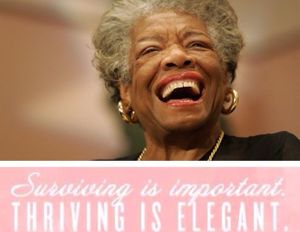Last week Donna kicked off our series on the three stages of trauma recovery. The first stage is safety and stabilization. Today — Good Friday in New Zealand — we look at stage two: remembrance and mourning.
Grief for Recovery###
In Beyond Betrayal I make the point that grieving is a necessary precursor to forgiving. Forgiving, as it so happens, is a necessary precursor to our (personal) healing.
Many women are tempted to try and by-pass the grieving process and get right to the forgiving — not for their own sake, but for the sake of the relationship. However as award-winning author Anne Hamilton writes in God's Panoply: "A forgiveness that does not count the cost is not forgiveness at all."
There are other women who do not grieve, not because they are avoiding the pain, but because they are unable to do so. One dear friend of mine has been emotionally locked up since a traumatic incident in her youth. This is where counseling and/or prayer ministry should be seriously considered. Once we have made some progress in being able to feel our emotions, then we can move on to the next step.
Grief Retreat: Counting the Cost###
For those who are ready, you could consider taking a three-day in-home, or away-from-home grief retreat. When I did this, I actually fasted for 24 hours of it, and ate very simply for the other 48. What we don’t want to do is make this a time to indulge in any of our unhealthy self-soothing mechanisms (and food is one of mine at times).
Instead, we want to focus on our losses, on the pain of these, and on the Redeemer. Things we’ll probably need:
- Journaling book (ideally the one we’ve been doing our exercises in)
- Music that helps us focus in on our pain and on God (note: Beyond Betrayal blog posts frequently end with appropriate music)
- A creative medium (Do you paint, knit, play music? Bring your gear to do so)
- A quiet, uninterrupted space, or “minimal interruption space” — we can’t always leave our kids behind, but we can ask for childcare support to maximize our quiet time
- Lots of kleenex
- A healthy comforting object (e.g. blanket, the cat/dog, a favorite sweater)
- A bible or bible app
- Another book that you have found helpful (possibilities: Shattered Soul: Five Pathways to Healing the Spirit after Abuse and Trauma; One Thousand Gifts, Ann Voskamp; Daring Greatly, Brene Brown)
- A copy of this document on how to do the Immanuel Prayer process
- Your best friend’s phone number (or someone from your support group)
On this last point, let your support person know ahead of time what you are doing and that having a person to process with might be helpful at times. That said, you don’t want to invite someone else to join you on this particular retreat (there will be others that can be about community, and even corporate lamentation). This particular sacred journey needs to happen predominantly between you and God. Do ask others to pray for the success of this retreat.
Letting God Lead###
What you do at this point will be to let God lead. Invite Him to do so. If you need help though, to get started with your processing, journal on the following:
- What would my life, including my spiritual life, be like today if it had not been for my husband’s addiction and the resulting trauma
- What normal adult life experiences did I get robbed of?
- What life opportunities were stolen from me?
- How would my life be different without his addiction
- What parts of me have had to be buried or underdeveloped because of the addiction/the trauma
- What relationships have I lost?
- What life dreams have I given up or put on hold?
- What have I lost spiritually?
- How much trust, faith, or hope has been drained from me by the addiction/trauma?
- How would my relationship with God be different now?
- To what degree have I, for now, lost my ability to feel valued and loved by God?
- How has the addiction/ trauma affected my relationship with prayer, worship or church communities?
- What have the addiction and resulting trauma taken from my life-vision and sense of personal life-purpose?
Write down your answers quickly — stream of consciousness — no worrying about how you say it, just get it out there. Try to take no more than half an hour. Next, go over the list and pick out the 10 most impactful or painful losses. Over the next two days you want to bring those into a solo Immanuel Prayer process.
Moving Forward###
Understand that grieving comes in waves… you will not be “forever done with all of it” because you went on this retreat. In fact, the retreat may simply make you realize that you’re going to need help getting past some of this (and that’s where you go to your support community). Nevertheless, it’s my hope that you find (as I did) that after this process you were considerably further along in your healing from trauma.
Easter Offer###
Please note that the Beyond Betrayal Couples' Guide (epub) is available from now until the end of March as a free download.
Each good Friday I spend some time reflecting on the grief of our savior -- and of his disciples. The injustice enacted on Him, was the greatest the universe has ever known. The redemption of that injustice: the joy of us all.


